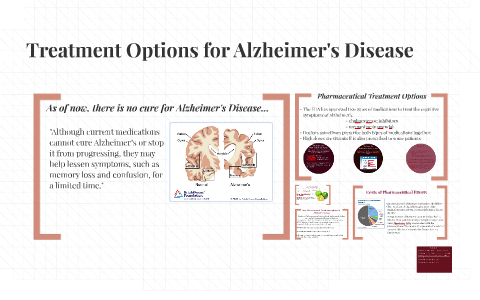
There are various treatments for Alzheimer’s disease. Some of these include medications that relieve confusion and memory loss. Others include lifestyle changes such as reducing alcohol consumption. While there is no proven cure for Alzheimer’s disease, many of these treatments help relieve symptoms. While there are no proven ways to reverse the progression of the disease, they can give patients more time to make decisions and live more independently. This article discusses some of the most common treatments for Alzheimer’s disease.
Behavioral treatments for Alzheimer’s include antidepressants and anticonvulsants. These drugs work to treat agitation and anxiety. They can also block the action of excess glutamate, a chemical produced by the brain. However, these treatments can also cause various side effects, including confusion and an increased risk of falling. These are just some of the most common forms of treatment for Alzheimer’s disease. For more information on the treatment and prevention of Alzheimer’s disease, visit the health website healthproductsworlwide.com/.
Some people can stay independent longer by taking cholinesterase inhibitors. While these drugs may not cure the disease, they can help the person with the disease live a more independent life. For mild to moderate cases, doctors may prescribe cholinesterase inhibitors. Although they have many side effects, they can improve quality of life. When used correctly, these medications can be an important part of your Alzheimer’s treatment arsenal.
Other drugs are available for patients with Alzheimer’s disease. Aside from preventing the decline of brain function and easing the symptoms, these medicines can also help control behavioral and mood changes. By managing these symptoms, the patient can be more comfortable and a caregiver’s task will be made easier. If a caregiver can manage these medications, it will make the caregiving process easier for both the patient and the family. This medication is available in many generic versions.

Other medications can be used to manage the emotional and cognitive changes caused by Alzheimer’s disease. Medications that boost cell-to-cell communication are effective for moderate-to-severe cases. Other treatments may be more expensive and require a more specialized approach. Those with mild to moderate stages of the disease may have to undergo a lot of testing to determine what kind of medications are right for them. The most common side effects of cholinesterase inhibitors are sleep disturbances and cardiac arrhythmia.
Certain medications can be used to treat behavioral symptoms caused by Alzheimer’s disease. Inhibitors of cholinesterase enzymes may be used to help moderate to severe cases. Aside from these drugs, there are other methods to treat the disease. For instance, the use of a neurologist may help reduce the symptoms. It is important to keep the patient in a safe environment, as it is a key part of preventing the disease.
Medications may be useful in some cases. Some are specifically designed to help the symptoms of Alzheimer’s disease, such as agitation. Other treatments, such as antipsychotics, can help reduce the severity of the disease, but their side effects include confusion and a higher risk of falls. Ultimately, the best treatment for Alzheimer’s is a combination of treatment. It is important to choose the right Alzheimer’s disease treatment for the patient’s needs.
While current Alzheimer’s disease medications are not effective in curing the disease, some are effective in easing the symptoms and halting the progression of the disease. One drug, memantine, has been approved for moderate-to-severe cases. It also works as an antipsychotic in people with Alzheimer’s disease, which is why it is important to find the right treatment for the individual. For example, some medications can make people irritable, while others can cause depression.
Medication for Alzheimer’s disease is not an effective solution for the disease. It is only a temporary fix for the symptoms. Fortunately, cholinesterase inhibitors have shown excellent results in patients with mild to moderate Alzheimer’s disease. These medications are usually prescribed to patients with mild to moderate symptoms of the disease and will be continued as the disease progresses. If these drugs don’t work for you, your doctor will recommend a combination of cholinesterase inhibitors to help them live a normal life.